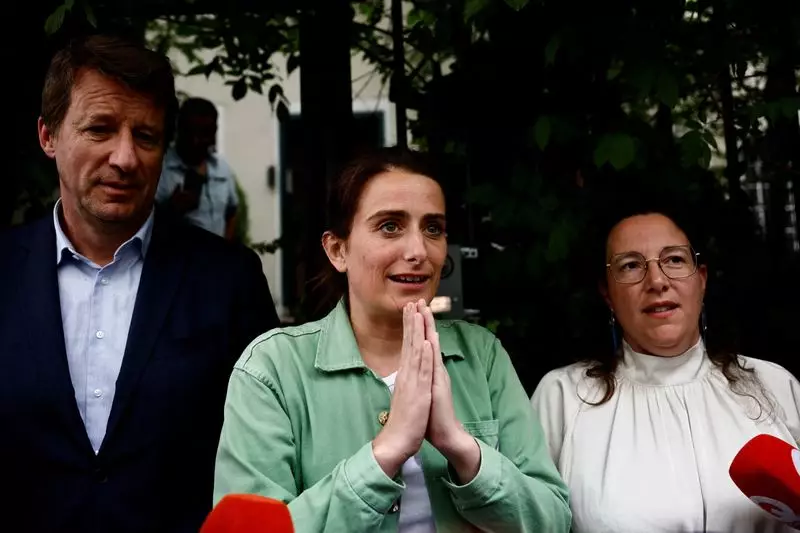The leader of the hard-left France Unbowed Party, Jean-Luc Melenchon, is portrayed as a fiery orator with a divisive reputation in French politics. Known for his unorthodox proposals and class war rhetoric, Melenchon has faced accusations of antisemitism. Despite his political experience and previous presidential runs, he has not been able to secure a win, falling short in the most recent election to Macron.
As the leader of the Greens, Marine Tondelier’s upbringing in a town known for harboring far-right sentiments has shaped her political career. Her opposition to the National Rally and her documented experiences provide insight into her commitment to ecological causes. Tondelier’s leadership within the Greens signals a new direction for the party in French politics.
Francois Ruffin, an author turned politician, has a history of independent political endeavors before joining Melenchon’s France Unbowed Party. His disagreements with Melenchon over strategy during the election campaign highlight internal divisions within the NFP. Despite retaining his parliamentary seat, Ruffin’s stance on democracy and political tactics sets him apart from traditional party lines.
Heading the Socialist Party’s list of candidates in recent elections, Raphael Glucksmann represents a revival of the party after a period of electoral decline. His background in journalism and advocacy for Ukrainian interests against Russian aggression demonstrate his commitment to international issues. Glucksmann’s influence within the Socialist Party signals a potential shift in the party’s direction.
Laurent Berger
Former CFDT trade union leader Laurent Berger’s role as a potential unifying figure within the NFP is notable. Despite his opposition to far-right ideologies, Berger’s reluctance to seek the position of prime minister underscores the challenges of finding consensus within the left-wing alliance. His moderate stance contrasts with more radical party members, presenting a unique dynamic within the NFP.
Fabien Roussel
As the leader of the French Communist Party, Fabien Roussel’s lifelong commitment to communist ideals and activism sets him apart within the NFP. His defense of French nuclear energy and traditional gastronomy reflects a distinct perspective on national interests. Roussel’s experience as a youth activist and advisor to political figures highlights his long-standing involvement in shaping French policy.
In analyzing the leadership of France’s left-wing New Popular Front, it is evident that the alliance comprises a diverse range of political ideologies and backgrounds. From established figures like Jean-Luc Melenchon to emerging leaders like Marine Tondelier, each member brings unique perspectives to the coalition. Internal disagreements, such as those between Francois Ruffin and Jean-Luc Melenchon, underscore the complexities of forming a cohesive bloc within the NFP.
The presence of established politicians like Raphael Glucksmann and Laurent Berger alongside grassroots activists like Fabien Roussel showcases the broad spectrum of voices within the NFP. Despite challenges in finding a consensus on key issues and leadership roles, the alliance’s ability to capture a significant portion of the parliamentary seats demonstrates its influence in shaping French politics. As the NFP navigates the post-election landscape, the dynamics between its members will play a crucial role in determining the coalition’s direction and impact on national policies.

